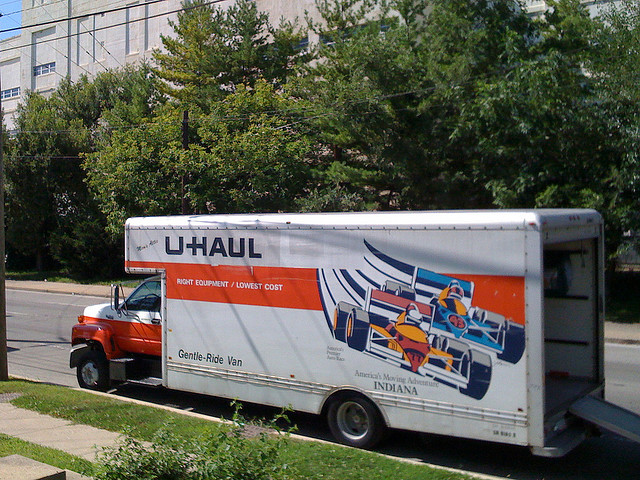Alice and Bob were both born in 1957, and became friends after they both settled in Washington, DC. In 1986, Alice bought a 2-bedroom home in the up-and-coming Dupont Circle neighborhood. Bob thought owning a home sounded like a lot of work, so he rented a similarly-sized apartment instead. His rent was cheaper than what Alice paid for her mortgage and local property taxes, and each month he put the difference into a 401(k).
Fast forward to 2016. Alice and Bob are 59 years old. Alice’s house is now worth $750,000. She’s paid off her mortgage but doesn’t have any other savings. Bob is still a renter, but over the years the value of his 401(k) has risen to $750,000.
Neither of them is wealthy, but each figures they’ll be in pretty good shape when they retire. Since Alice owns her home outright, she won’t have to devote any of her Social Security check to paying the rent. Bob expects his $750,000 nest egg to generate an income of around $2500 per month, which will just cover his rent payment.
In November, Joe Biden is elected president. The overwhelming success of Obamacare has given the Democrats large majorities in both houses of Congress. And at the top of Biden’s agenda is a cause that’s been championed by prominent bloggers like Matthew Yglesias.
A few years earlier, Yglesias had calculated that the value of all land in the United States was worth $14.5 trillion. Four years later, the figure was $17 trillion. The income tax is projected to generate taxes of $1.7 trillion in fiscal year 2018, so Biden’s advisors propose that the income tax be cut in half, with the lost $850 billion in revenue being made up with a 5 percent land value tax.
Bob likes this idea. He makes $100,000 per year and pays about $1500 per month in federal income taxes. With taxes cut in half, he’ll be able to squirrel away an extra $750 per month, increasing his retirement savings by $50,000 by the time he turns 65.
But Alice isn’t so enthusiastic. She makes the same salary as Bob and will get the same $750-per-month tax cut. But because she’s a homeowner, she’s going to owe additional taxes. The Internal Revenue Service has determined that $600,000 of her home’s $750,000 value is attributable to the value of the land underneath the home. So her land value tax bill is $2500 per month. The net change to her tax bill is $1750 per month.
Alice doesn’t have an extra $1750 lying around each month to spend on land value taxes. She can scrape together an extra $750 per month, but beyond that she realizes she’s going to have to tap her home equity to help pay the higher taxes.
But then she encounters a big problem: the value of her home has plummeted. Before the land value tax, people would have paid her $750,000 for her home, which would have meant a mortgage payment of around $3000 per month. But now owning her home means a liability of $2500 in land value taxes alone. Potential buyers take this extra cost into account, and it reduces the amount they are willing to pay for the house from $750,000 to $150,000.
Each year, Alice takes out a home equity loan of $12,000 to help her cover the added cost of the land value tax. But by her 70th Birthday, her home equity has dwindled to the point where the bank won’t lend her any more money. She’s forced to sell, with the sale netting her $30,000.
Alice is justifiably angry about the land value tax. Over the course of their careers, Alice and Bob both worked hard and saved significant sums. While they chose to invest in different assets, their investments had similar value in 2016. It’s not fair that a decade later Alice’s choice to invest in real estate would leave her penniless while Bob’s choice to invest in stocks and bonds would give him a windfall.
Advocates of a land value tax emphasize its efficiency, but efficiency isn’t the only thing that matters for tax policy. Fairness is also important. Similarly-situated individuals should pay similar taxes. A high land value tax fails this test, imposing potentially ruinous taxes on those who have chosen to invest their savings in real estate for the benefit of those who have invested in stocks or bonds.
This story illustrates another important point too: while the land value tax is paid over time, the burden of the tax (its incidence, in economics jargon) falls entirely on the person who owned property at the time the tax was instituted. The value of future taxes gets immediately priced into the value of real estate. For those who buy property after the tax is instituted, the higher property taxes are offset by lower mortgage payments.
In other words, the economic efficiency of the land value tax comes from the fact that it operates by confiscating wealth accumulated in the past rather than taxing the accumulation of new wealth. This, too, is unfair. Society benefits when people defer gratification and save for the future. People justifiably expect that if they save today, they’ll enjoy the benefits of that accumulated savings in the future. Of course, people who generate income from their accumulated wealth should pay their fair share of taxes. But a land value tax goes way beyond that point, depriving owners of one particular asset class of the benefits of decades of thrift.





